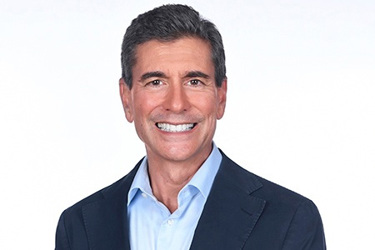Bridging The Gap: Separating The Facts From Medical Misinformation
By Anthony Japour, M.D.

The COVID-19 pandemic is officially over in the US, yet the WHO warns that new variants remain a global threat. As long as these strains continue to lurk amongst us, so will the myths and misleading information surrounding the virus’s prevention and treatment.
FDA Commissioner Dr. Robert Califf recently said that life expectancy in the U.S. is now between three to five years lower than the average in other high-income countries, and the gap comes in part from misinformation.
When I started writing this article, the COVID-19 pandemic was top of mind. Last week, Dr. Peter Hotez, a well-respected-vaccine scientist, said he was stalked at his home and attacked online, for sharing an article he penned on vaccine misinformation promoted by Robert F. Kennedy.
According to epidemiologist Eric Feigl-Ding, the attacks escalated further at a recent convention in Washington, DC. Dr. Feigl- Ding said he and Dr. Hoetz were swarmed by a group of RFK Jr’s supporters and anti-vaxxers and felt physically threatened.
Throughout the COVID-19 pandemic, tensions were also high. Who can forget the conspiracy theory that vaccines could alter our DNA, cause infertility, or the reported hospitalizations of COVID-19 patients who self-medicated with the livestock drug ivermectin? The public was exposed to premature, incomplete, and misleading information. Some information came from the government, some from private industry, some from the medical community, some from family and friends, and some from people trying to make a quick buck from a vulnerable, frightened, and gullible public. In a Johns Hopkins Center of Health Security study, the financial cost of the COVID-19 misinformation was estimated to be $50-300 million dollars per day.
Misinformation about medical matters is hardly a recent phenomenon. Still, the instant and universal reach of social media and the internet has made it a potentially more damaging problem, as illustrated by the pandemic. Estimates are that at least half the medical information on social media and the internet, and probably more, can be categorized as misinformation.
I first became concerned about the dangers of medical misinformation in 1981, when HIV/AIDS first appeared. Throughout the early years of the HIV pandemic, a frightened public overreacted to what was a disease that was not transmitted by casual contact. As with the recent pandemic, information was constantly evolving. Initially, no one knew the cause or the extent of AIDS. As a result, there was rampant misinformation about how AIDS was transmitted, how infectious it was, who was at risk, and how to treat it. As occurred during the COVID-19 pandemic, the government became an agent of misinformation, undermining government credibility and widespread public misunderstanding.
Combatting medical (and other) misinformation is a global existential problem. We must address this global challenge, which will take time and creativity- and inevitably, controversy.
Until we can have more confidence in medical information, individual consumers should and must take steps to protect themselves and their families from being misinformed and, consequently, making bad personal decisions. Those steps include the following:
Be skeptical. Start by viewing all information from sources other than your healthcare professionals with skepticism. Just because it’s on social media or the internet doesn’t mean it’s accurate.
Be sure the source of the information is reliable. The best sources for personal medical information are, of course, our healthcare professionals – our doctors, our pharmacists. Friends and family may try to be helpful, but unless they have medical training, they may not have the basis to help.
On social media and the web, verify that the source of medical information is credible. Sources with academic credentials often are the best. Unfortunately, medically oriented websites vary considerably in their reliability. Usually, we can trust a government website, but as we have seen, that was only sometimes the case during the COVID-19 pandemic.
On TV, where advertising of medical products is pervasive, prescription drug commercials can lead us to seek treatments that are not suitable. TV commercials for prescription drugs are accurate because the FDA regulates every word and requires a balance of safety and efficacy in each commercial. But such commercials may lead consumers to pressure their doctors to prescribe an unnecessary drug. The regulation of advertising for non-prescription medications, devices, and dietary supplements is more permissive and may lead us to buy products that don’t work.
Do not self-diagnose based on information from the internet. I have seen many people believe they have a disease based on how an internet site describes symptoms or think they have figured out the best treatment based on internet research. The diagnostic tools and remedies available to healthcare professionals are very sophisticated. An accurate diagnosis and proper treatment require professional oversight.
Listen carefully. When patients are in a doctor’s office, they are anxious. Patients often mishear or do not understand what their doctor is saying. I advise patients to take notes and to ask questions. While the communication between patient and doctor does not fall in the category of medical misinformation, patients and doctors must understand the importance of clear communication and how unintentional miscommunication can lead to medical misinformation.
Nothing is more important than being healthy and ensuring that our health decisions are based on reliable information.
Bio:
Dr. Anthony Japour is the CEO of iTolerance, one of three biotech companies recently selected to participate in a Disruptive Healthcare Technology Showcase at the U.S. Capitol.
